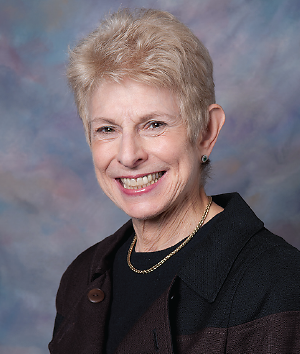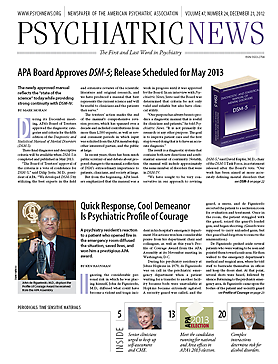“What can I tell you about this territory of the downward slope, of thickening twilight? Well, there is the matter of the winking out neurons. On your brisk way to perform a minor errand, you forget what the errand was. You stand in the center of the room inwardly waltzing with the ghost of your good intention.… Well, let’s not forget that forgetfulness is the safeguard of sanity. If we remembered everything all the time our brains w ould be clogged and clamorous.” —John Updike in On Turning 50
Almost anyone over the age of 50 can relate to Updike’s whimsical observation—our brains are not as clogged as they once were with the debris of information we can do without.
And physicians are no exception.
But in a changing medical-regulatory environment that demands a commitment to “lifelong learning,” maintenance of licensure and certification, and ongoing assessments of clinical competence, the small “senior moments” that surprise us on the leeward slope may not be, for doctors, a minor matter.
At the AMA’s Interim Meeting, its Senior Physicians Group convened an educational panel to address issues and problems facing aging physicians. These include maintaining clinical competence, being aware of liability and remediation issues that may be associated with cognitive decline, and keeping up with continuing medical education and maintenance of licensure.
“The group is concerned about making sure that senior physicians can remain accountable in this era of accountability,” psychiatrist Barbara Schneidman, M.D., a member of the group, told Psychiatric News. “What will happen to our senior physicians as the entire physician workforce is expected to participate in ongoing assessment procedures? Will it lead to physicians leaving the workforce, either voluntarily or by other means?
“We want senior physicians to be able to stay ahead of the curve and maintain an active and competent clinical practice for as long as they are able,” she continued. “And we are very concerned as these new requirements for self-assessment and maintenance of certification become a reality—any assessment system needs to be developed by peers and stay within the profession.”
Schneidman is also president of the Washington State Psychiatric Association and president-elect of the American College of Psychiatrists.
Group Becomes Section
Psychiatrist Paul Wick, M.D., a member of the Section Council on Psychiatry and governing council of the Senior Physicians Group, told Psychiatric News that at the AMA’s Interim Meeting, the group was approved to become a “section” with its own delegate and the ability to recommend policy to the House of Delegates.
Just as the aging of the general population is probably the most important demographic fact about American political and cultural life, so the number of physicians who qualify as “senior” is also significant within medicine. The AMA Web page for the Senior Physicians Section states that the group, comprising doctors over the age of 65, has more than 55,000 members.
“What we know is that about 20 percent of physicians are over age 65,” Schneidman said. “What we don’t know is how many are clinically active, in administrative positions, or retired.”
Wick added that a task force is being formed that will develop a white paper for the AMA board and House of Delegates outlining key issues and problems confronting seniors.
Probably the most important of those—and the most urgent message for aging physicians—is the importance of ongoing self-assessment and keeping up with continuing medical education and maintenance of licensure.
Schneidman emphasized that if physicians are experiencing some degree of cognitive decline, it is likely to be detected in the kinds of assessments now being required of doctors. If such decline is based on objective evidence—rather than subjective observation by colleagues or superiors—there can be opportunities for remediation.
In some cases, she said, cognitive decline can be a symptom of major depression or other treatable condition.
Schneidman said ongoing self-assessment need not be torturous; it can be a way to “train the brain”—keeping it fit and keeping oneself up-to-date and current with clinical trends.
Failure to keep up with CME and certification requirements could be disastrous. “If there is any question or issue of liability that comes up around a physician’s competence and he or she hasn’t kept up with CME, that physician will be nailed,” Schneidman said.
Don't Give Up That License
Also, she advises physicians who are retiring or moving into nonclinical positions not to relinquish their license if they think there is any possibility they may return to clinical practice. “Once you relinquish your license, it can be very hard to get it back,” she said. “You want to keep your license unrestricted and unblemished.”
Nonetheless, she said she knows of no malpractice cases that revolve around diminished competence related to aging and emphasized that physicians can stay active into their elder years. Psychiatry, especially, offers opportunities to diversify one’s practice, taking on supervisory or consultative roles, she said.
At the same time, the isolation that accompanies private solo practice can carry its own problems associated with aging. And it raises the important question of knowing when to quit.
She recounted the story of an aging psychoanalyst in her area who has spent years in one-on-one analysis. Now in his 80s, he is semiretired, working part time as a supervising analyst and with a group practice. “He told me, ‘It’s up to my colleagues in the practice to tell me when it’s time to retire.’ ”
Aside from the practical considerations of licensure and maintenance of certification, Schneidman urges physicians to maintain their health and always have a personal primary care doctor—no relying on self-treatment or treatment by colleagues—who can serve as an objective voice of reason regarding one’s mental and physical health.
That’s good advice, and not just for older physicians. Because let’s face it—if they are lucky, younger physicians will eventually become members of the graying faction. As Schneidman said, “We are all headed in the same direction.” ■

